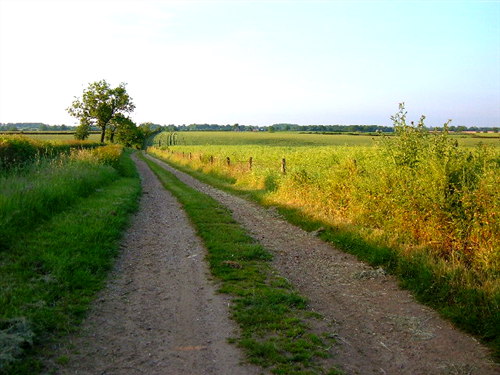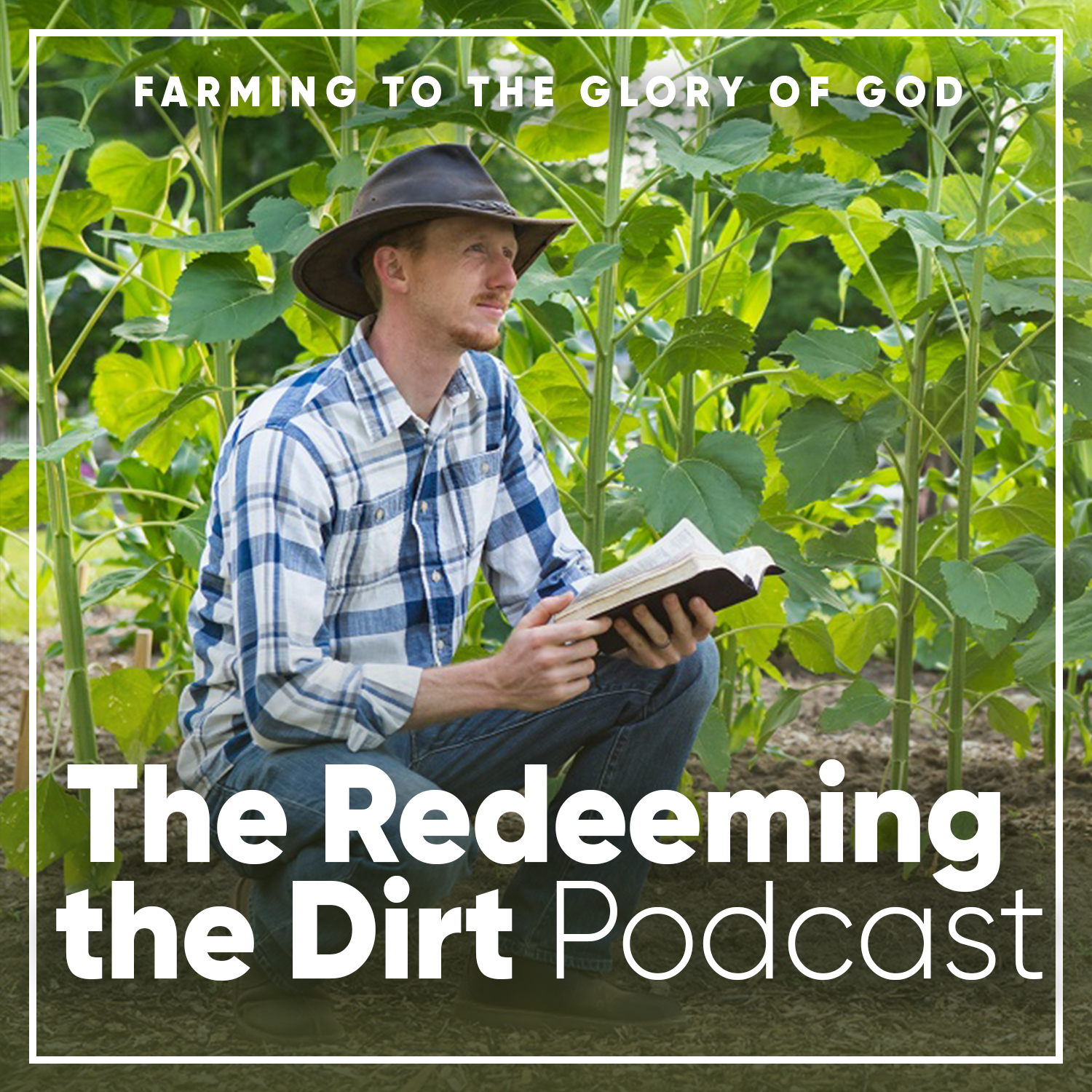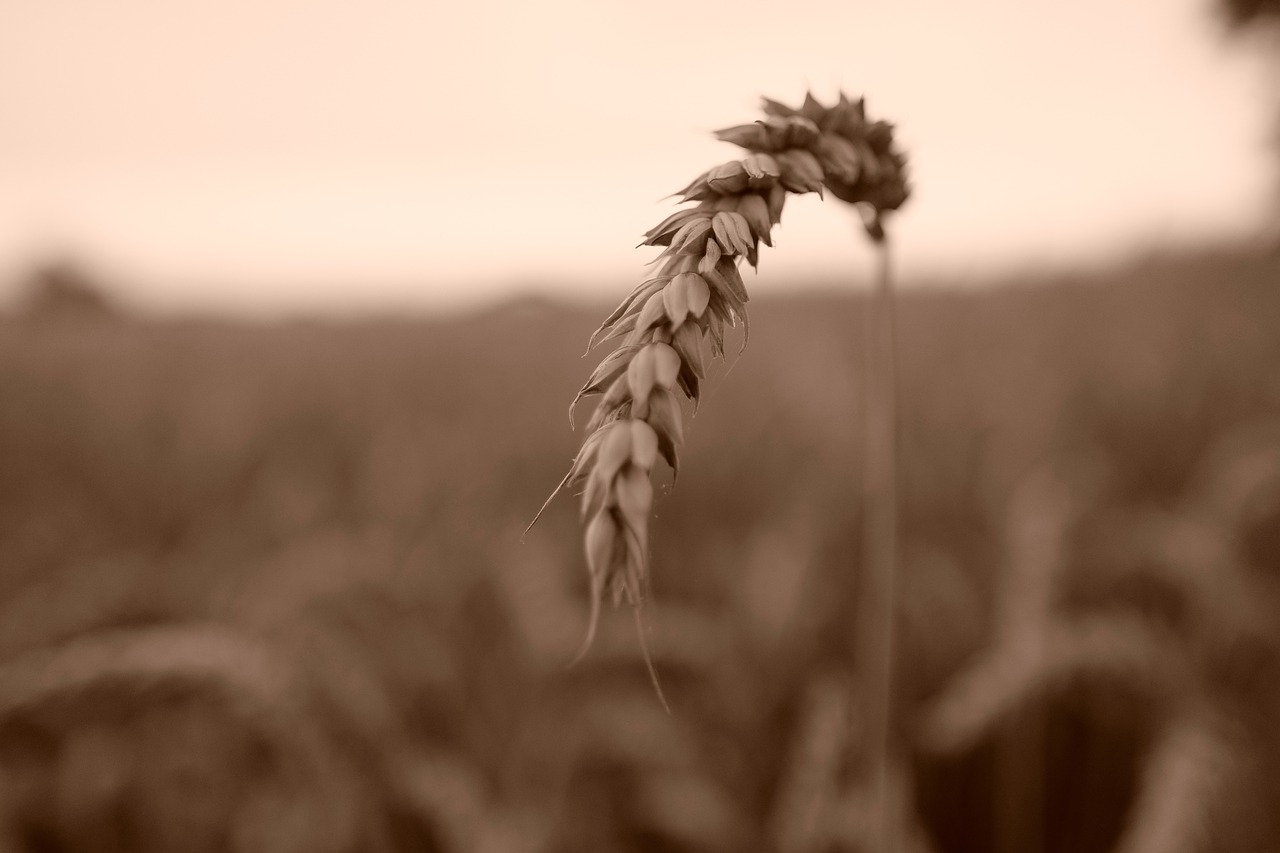
The beauty of redeeming the dirt is that it is a road we travel, not a place at which we arrive.
After the last post I want to make sure that I didn’t discourage anyone. My goal with this blog is not to focus on the shortcomings of the way many of us farm, but to try and discuss where God wants us to be heading wherever we are right now. I want to provide encouragement for us in the journey of redeeming our dirt. Even though we may not all be on the same leg of the journey, we can all have unity, because we all have the same direction, which is Christ.
Many times it’s easy to get discouraged as we seek to be obedient to the scriptures and honor God in every aspect of our farming. As we begin to realize our responsibility to follow Christ more fully it seems like an impossible task. However, God is faithful, and never calls us to do something without providing us with the means to do it. This doesn’t mean that our farms will be perfect overnight. Sanctification is a journey consisting of individual steps, one at a time. And God doesn’t normally provide us with the means to take more than just the next step.
One example of this would be the chicken feed we use on our farm. As a Born Again Farmer I want to honor the way God designed chickens and feed them what they naturally eat. Therefore, I would love it if I could provide them with access to a selection of things like natural grain or roots, grasses and greens, grit, insects, and water. However, although chickens can get much of this from free-ranging, there isn’t normally enough space to provide food for all their needs plus extra to produce eggs for me. So, in order to care for and work them I have to provide some sort of feed other than forage. When I first started farming I wasn’t in a position to grow my own feed. So with my first chickens I just fed them commercially-mixed chicken feed from the local feed store. It was the best I could do with what I had available. However, I was on the lookout for more God-honoring feed options.
After several years the Lord provided a local feed mill that mixes it’s own natural chicken feed from fresh ground grain and organic mineral supplements. More expensive, but much better quality! You can tell a difference in the eggs. However, the feed still contains genetically-modified grain, which I would like to avoid in order to be as honoring to God’s design as possible. The owner of the feed mill is also naturally-minded and has his own free-range chicken flock and would like to stop using the GMO grains. However, at the moment we haven’t found a reasonable source. Because so much of the grain grown in the U.S. is GMO, unmodified grain has become a specialty product bringing a high price. And in my area of the country, there aren’t many grain farmers that we could get to grow some for us. So right now I have to rest in the fact that I am feeding the chickens the best feed I can while keeping my eggs affordable, but am working on trying better options as the Lord reveals them. For instance, earlier this year I experimented with growing oats and letting the chickens harvest them themselves.
The Lord can use us wherever we are. Whether we are a large scale grain farmer, a small scale organic farmer, or a back-yard gardener, the goal is to be ever changing and reforming our farms to be more and more God-honoring. Because of sin, we will never fully arrive, but we want to be heading in the direction God wants us. So don’t let the current place God has you in your journey discourage you from pressing on. Just be faithful with the talents the Lord has entrusted to you at the time.
Lets also be careful not to judge others because God may have them on different part of the journey. We need to be bold in stating God’s principles, but humble and full of grace in considering application. Instead, lets focus on encouraging one another in the journey, and being faithful to press hard after Christ.
And let us consider how we may spur one another on toward love and good deeds. Hebrews 10:24 (NIV)
That servant who knows his master’s will and does not get ready or does not do what his master wants will be beaten with many blows. But the one who does not know and does things deserving punishment will be beaten with few blows. From everyone who has been given much, much will be demanded; and from the one who has been entrusted with much, much more will be asked. Luke 12:47,48 (NIV)



It took us awhile to get where we are now; it will take us awhile to get where we need to be. In the meantime, we have a good deal of faulty thinking to un-think, for one thing, the almost unquestioning, all too credulous view we have of “progress”: Beware of the phrase “new and improved”!
Once again, I don’t think we want to be mere Ludites, but it seems to me we do need to think critically regarding long term effects of any innovation in machinery, genetic modifications to plants and livestock, and perhaps even more so to the chemicals we use in fertilizers and pesticides. There’s more to the bottom line than the bottom line. It is a false economy that looks only at the fast buck, and as has been written elsewhere, the paradigm of industrialism ill fits good farming.
As you have already written, this is God’s earth, and we are supposed to be His stewards. Yes, He is indeed concerned about the salvation of souls, but this care is wonderfully comprehensive, encompassing all of His creation (Rom. 8). The gnostic heresy that so pervades the church, bifurcating secular and sacred, assisted by an eschatology that only sees escape from this world, has done a great deal of damage both to the earth and to the church’s witness.
Okay, speaking of bifurcation, how do I apply what you have written and what I’ve just said to the “mundane” issues of thinning my carrots, spinach, and the care of the rest of my winter crop? As I’m thinking about our little beeyard, how do I continue to improve in a God honoring way? What about those new raised beds I’m thinking of adding?
No doubt there are specific answers to many of these questions, but it seems where you’re heading is not a mere item by item “How to Be a Godly Farmer/Gardener”, but rather an all pervading, comprehensive shift of paradigms that alters our entire view. Gosh, it sounds a lot like sanctification! ; )
David,
Yes, on this blog I am primarily trying to promote a biblical agricultural worldview that shapes our view and directs our decisions. The beauty of God’s Word is that it framework of principles that can be applied in all circumstances and situations. Therefore I hesitate to promote any particular method as the only or best way to farm in all circumstances. However, what I do want to do is promote the Biblical principles relating to agriculture and provide examples of and encourage the pursuit of applying those principles.
Lord willing,I will soon be announcing my forthcoming book, in which I hope to consider the application of Biblical principles to things like farm design, production methods, the role of the farmer, marketing, etc.
Sure does! 🙂
I’d like to say first, what a great blog you have. I’ve enjoyed reading it very much.
My husband and I run a relatively large farm (for our area) and grow cash crops. I’m very interested to hear how your chickens liked the oats you let them harvest. Now that I’ve got a few years experience with chickens under my belt, I’m ready to step away from commercially mixed feeds and produce my own. Since we have quite a bit of acreage I should easily be able to grow enough non-gmo grains to supply my hens, I just need to decide which will be best for my girls. Have you found any particular grains more or less palatable or nutritious for your chickens?
Thanks for sharing your experiences!
-M
Marie,
What a blessing that you have the opportunity to grow some of your own grain! Wish you were near me. As far as what to grow, I don’t have a lot of experience. What I would suggest is focus on a diversity of grains and other foods. The chickens will get more of a variety of nutrients that way than if you just focused on one thing. I would try things like corn, wheat, oats, millet, sorghum, barley and rye.
Joanna,
For feed chickens require the following: Grain, protein, greens, grit, and water.
If your chickens are allowed to roam they can pick up much of the greens, grit and some protein (bugs) making it so you can get away with giving them just grain. However, especially in the winter when they can’t roam we need to make sure we give them a more complete diet. Right now I am feeding my chickens turnips, rutabagas, and an occasional cabbage to supply greens in place of grass.
Here is a great set of articles on this subject:
http://www.themodernhomestead.us/article/Feeding.html
Thanks that was just the kind of information I have been searching for.
I am also interested in what to feed chickens when not using processed feed. I was wondering what would be missing from a grain feed that needs to be supplemented? I intend to have chickens in arks to protect them from foxes and a lynx, so they will get to scratch around in grassland but in a limited area. In winter they will be in a greenhouse though as we can have very cold winters.
I understand they will need something like oyster grit for calcium and grit for the crop. I also hear that oats are good for the morning but not so much for the evening, corn being better for a warming feed for overnight, especially in the winter. I am sure they will need some other foods though to maintain peak condition
Noah,
What a blessing to find your website. I train missionaries about how they can use farming to earn the right to share Christ with hurting people. I would be honored if you would take a look at my training manual, ABUNDACULTURE. It’s a free PDF. Just go to my website, go to Articles and download. I ordered your book and can’t wait to read it. May God bless you and your family as you continue to get out His great message. I’d love to meet you if you are ever in Colorado. Jack
Jack,
It’s great to hear from you! I downloaded your book and have only had time to glance over it, but it looks like a great resource for people, especially those in missions. We have a place up the road from us that does training in sustainable living for missionaries (http://www.sifat.org/).
In Christ,
Noah
I am really enjoying your site! I am obviously reading old posts, and I haven’t read them all, but I had two pieces of information you might enjoy. First, I know of at least 2 people personally who are feeding their chickens only wheat and then letting them free-range and pick through the compost pile. They both enjoy healthier eggs then they had feeding them commercial feed.
Second, I haven’t seen any mention of it, so I thought I would recommend a film on gardening according to God’s plan at http://www.backtoedenfilm.com. This method encourages following God’s plan for gardening and healing the ground at the same time. I really appreicate that the author shares his insights from the Bible and the world God created in explaining the methods he uses. We have begun using the methods described and are very pleased. As a bonus it actually takes less work than traditional farming. This allows us to grow more and share with those that are in need. God bless you in your efforts to turn men’s minds back to Him.
Michelle,
Thanks for the info! Sorry it has taken so long to get back to you. It has been busy around here lately. ‘
That is great that your friends are able to give their chickens a diet of wheat and what they can forage in the compost! I have done that to a certain degree with some of my chickens, but I haven’t found a way to make it work with the number of chickens I have (400 plus). However, we are working on it. This week I hope to harvest an acre of wheat that I have grown. Some of it will go to us, and the rest to the chickens, Lord willing.
I have seen the film Back to Eden and really enjoyed it. In fact, I need to recommend it on this blog soon. The gardener on the film inspired me with his heart and relationship with the Lord.
In Christ,
Noah